"Six minutes of breathing difficulties, at that moment I thought I was going to die..." Former Olympic champion Yang Wei revealed that he suffers from a severe respiratory disease and needs to rely on a ventilator to maintain his life! In front of the camera, he appeared helpless, with a look of fatigue in his eyes that moved countless netizens.
Who would have thought that this gymnastics king who strides like flying on the field is now tormented by illness.
So, what exactly has Yang Wei experienced? And has his condition improved now?

From Weakness to the Peak of the Olympics
In 2008, at the Beijing Olympics, 29-year-old Yang Wei faced his last chance in his career.
On the day of the competition, the National Stadium was packed with spectators and the atmosphere was热烈. Yang Wei remained calm and composed, performing excellently in each event.
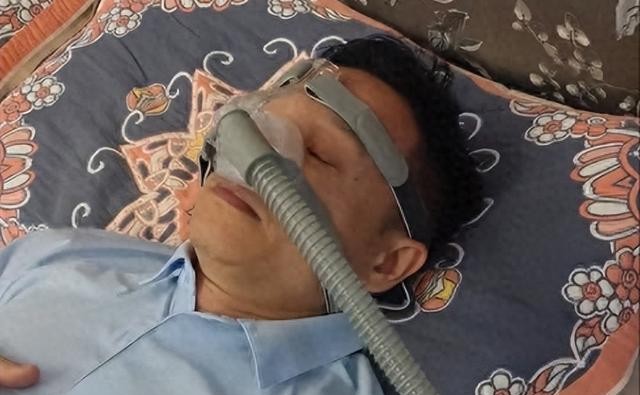
Especially on the parallel bars, he perfectly executed a set of difficult movements, winning the cheers of the audience.
In the end, Yang Wei won the individual all-around gold medal with an excellent score of 94.575 points, and also helped the Chinese team win the team gold medal.
When the referee announced the final score, Yang Wei knelt down in excitement, tears streaming down his face.
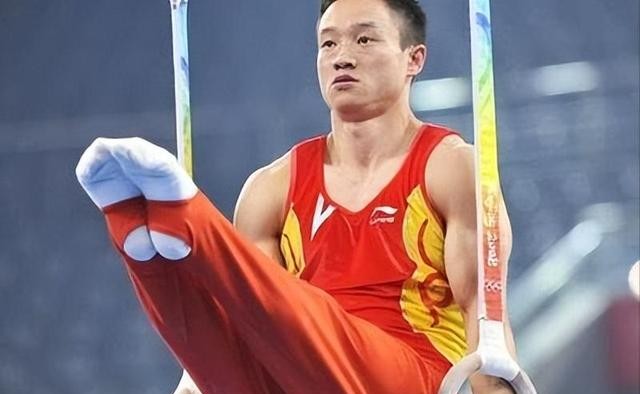
At that moment, he not only fulfilled his long-held dream of becoming an Olympic champion but also became a symbol of Chinese gymnastics.
In the stands, Yang Wei's parents were in tears.
They will never forget how that thin little boy walked step by step to where he is today.

In 1980, in an ordinary family in Xiantao City, Hubei Province, Yang Wei was born.
However, fate seemed unkind to this child.
Born weighing only 3.25 kilograms, he was diagnosed with malnutrition and had to spend his early days in an incubator.

The turning point in Yang Wei's life occurred when he was 5 years old.
By chance, local sports school coach Peng Youping discovered Yang Wei's outstanding upper body talent.
Although Yang Wei's leg shape and leg strength were not satisfactory, Coach Peng still saw potential in him.
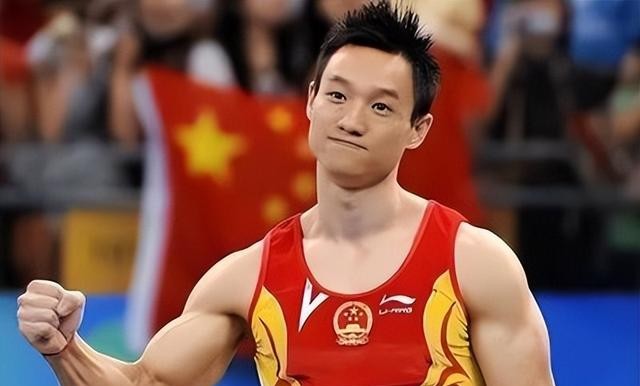
"Your son will surely achieve great things!" Coach Peng confidently told Yang Wei's father.
It was this sentence that completely changed the trajectory of Yang Wei's life.
From then on, Yang Wei began his arduous training career. Every day before dawn, he had to get up and rush to the sports school.

Through the cold and heat, rain or shine, those tender little hands quickly grew calluses, but Yang Wei never uttered a word of hardship.
However, the path of growth is never smooth sailing. Yang Wei's leg shape problem once became a stumbling block in his progress.
To improve his leg shape, the coach came up with a special method: binding Yang Wei's legs with straps.

This seemingly simple method caused the young Yang Wei a lot of suffering.
Sometimes the pain kept him awake all night, but he knew that without enduring this hardship, he could never chase after his dreams.
It was this indomitable spirit that allowed Yang Wei to make a stunning breakthrough at the 1992 National Games, winning five championships at once.
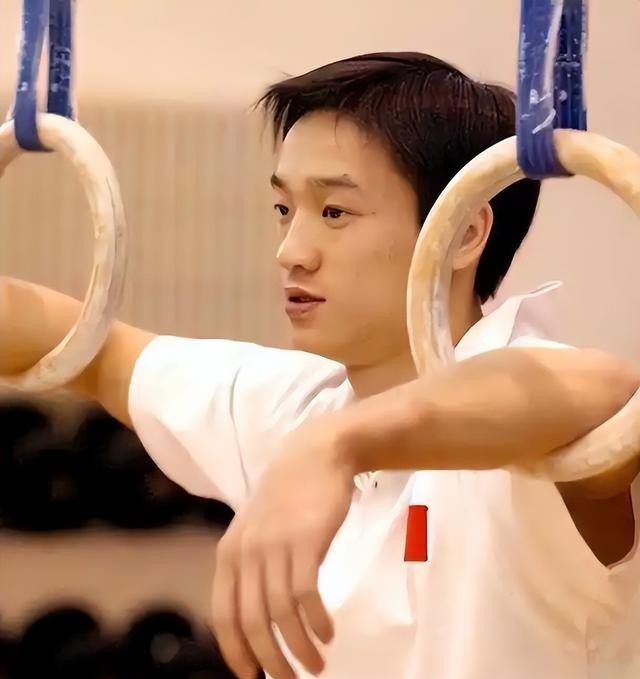
At the age of 12, he proved with his strength to all the doubters: even with insufficient natural conditions, efforts can also create miracles.
In 1996, at the age of 16, Yang Wei fulfilled his wish to enter the national team. From then on, a new chapter in his life unfolded.
However, what awaited him was not smooth sailing and glory, but more setbacks and tests.
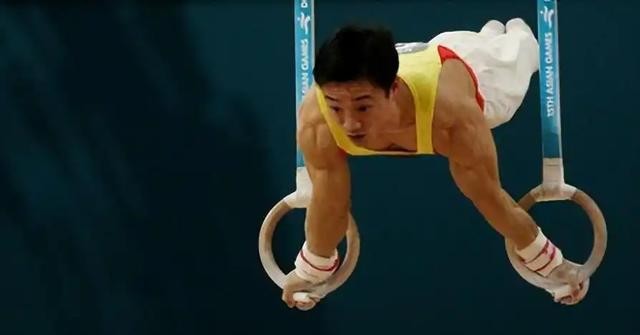
From "Eternal Second" to World Champion
In 2000, when Yang Wei first stepped onto the Olympic stage at the Sydney Olympics, his heart was filled with excitement and trepidation.
Although he performed outstandingly in the team event and helped the Chinese team win the gold medal, he failed to achieve his desired result in the individual all-around competition.

In the final, Yang Wei made a mistake in the parallel bars, his strongest event, and ultimately only finished fourth.
This setback deeply frustrated Yang Wei, and in the following years, he repeatedly missed the gold medal on the international stage.
The media began to label him as the "eternal second," a nickname that stabbed deep into Yang Wei's heart like a thorn.

However, Yang Wei was not defeated by these setbacks. On the contrary, he turned these defeats into motivation and devoted himself even more diligently to training.
The 2004 Athens Olympics should have been the stage for Yang Wei to prove himself. However, fate seemed to play another joke on him.
In the individual all-around final, Yang Wei made another mistake in the parallel bars, his strongest event.

His hand slipped while completing a difficult movement, forcing the entire routine to be interrupted.
This unexpected incident directly caused Yang Wei to miss the gold medal, and he ultimately only won the silver.
After the match, Yang Wei sat alone in the locker room, dejected, and this blow was undoubtedly heavy for him.

But upon returning home, Yang Wei did not give himself too much time to wallow in depression. He quickly adjusted his mentality and re-engaged in even more rigorous training.
Getting up at five o'clock every morning and ending training at eleven o'clock at night, such high-intensity training continued for two whole years.
Yang Wei's efforts soon paid off.

At the 2006 World Championships, he won the individual all-around championship with an absolute advantage, finally shedding the label of "eternal second."
In 2007, Yang Wei once again defended his individual all-around championship at the World Championships, firmly establishing his status as the world's number one.
From Retirement to Dependence on Ventilators

However, behind the glory often lies a price unknown to others.
In 2009, when the sports world and fans were expecting Yang Wei to create further brilliance, he unexpectedly announced his retirement at the young age of 30.
This decision left many puzzled and regretful.

Years of high-intensity training had placed a huge burden on Yang Wei's body.
After retiring, Yang Wei admitted in interviews that years of high-intensity training had caused irreparable damage to his knees and shoulders.
If he continued to compete, it might leave an irreversible regret.

Moreover, as a new father, Yang Wei also hoped to have more time to spend with his family.
After retiring, Yang Wei's life underwent a revolutionary change.
He began to try different fields, showing a completely different side from the one on the field.

In 2010, Yang Wei participated in the Hunan TV variety show "Day Day Up," winning the affection of the audience with his humorous and witty performance.
Subsequently, he also participated in the recording of multiple variety shows, gradually gaining a foothold in the entertainment industry.
In terms of family life, Yang Wei's marriage to his wife Yang Yun has received much attention. The couple married in 2008 and have three children.

After retiring, Yang Wei shifted his focus to his family, often recording the warm daily moments with his children on social media, showcasing the tender side of an Olympic champion outside the field.
Meanwhile, Yang Wei also began to venture into the business world. He invested in real estate and established his own sports training company.
With the fame of an Olympic champion and a good business acumen, Yang Wei's economic situation is quite substantial, and his family life is also quite luxurious.

However, fate seemed to play another joke on Yang Wei again. In recent years, he began to be plagued by sleep apnea.
This disease not only severely affected his sleep quality but also posed a threat to his life safety.
Initially, Yang Wei did not realize the severity of the problem until one time when he suddenly stopped breathing in his sleep and was awakened by his wife.

Facing this sudden health challenge, Yang Wei once again demonstrated the tenacious character of an Olympic champion.
He actively sought medical help and began using a ventilator to improve his sleep quality.
Despite the inconvenience this treatment brought to his life, Yang Wei remained optimistic.

In 2023, Yang Wei proactively disclosed his condition on social media, triggering widespread attention and discussion.
He described his symptoms and treatment process in detail, hoping to raise public awareness of sleep apnea.
This move received a positive response from the medical community and the public, causing many people to start paying attention to their sleep health issues.
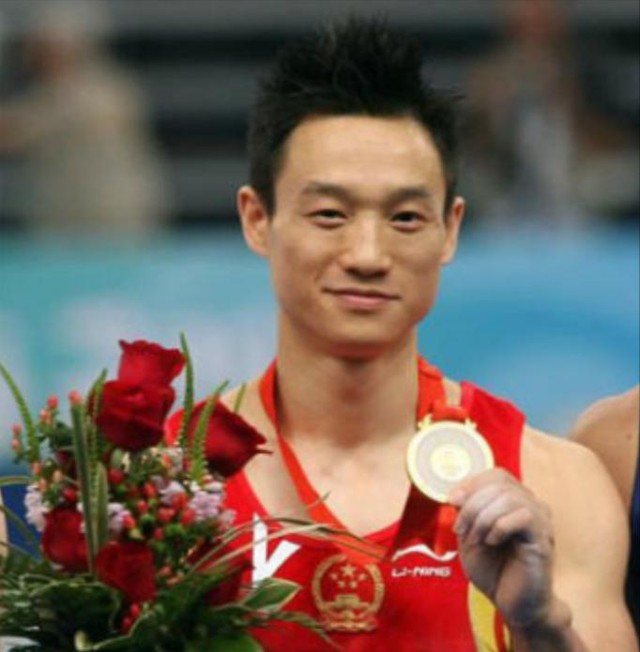
Despite facing health challenges, Yang Wei has not given up his love for the gymnastics career.
He often serves as a commentator for major gymnastics events, providing professional and exciting commentary for the audience.
His commentary is not only insightful but also often interspersed with his own competitive experiences, giving the audience a deeper understanding of the sport of gymnastics.
Moreover, he extended his passion for the sports industry to the education of his children, which unexpectedly sparked controversy among netizens.
He once expressed the hope that his children could follow in his footsteps and become excellent gymnasts.
This idea was questioned by some people, believing that it is inappropriate to set a life direction for children too early.
In response to the doubts, Yang Wei explained that he only hopes his children can engage in sports and cultivate a healthy lifestyle.
As for future career choices, it is still necessary to respect the children's own wishes.
Today's Yang Wei, although needing to rely on a ventilator to maintain health, has not given up his love for life.
He continues to pay attention to the gymnastics industry, contributing his share to the development of Chinese gymnastics.
At the same time, he also actively participates in public welfare activities, using his influence to contribute to society.
Yang Wei's story extends from the gymnastics arena to real life, demonstrating the resilience and courage of an athlete in the face of various challenges in life.
Conclusion
In this fast-paced era, we are often troubled by immediate successes and failures. But Yang Wei's life journey tells